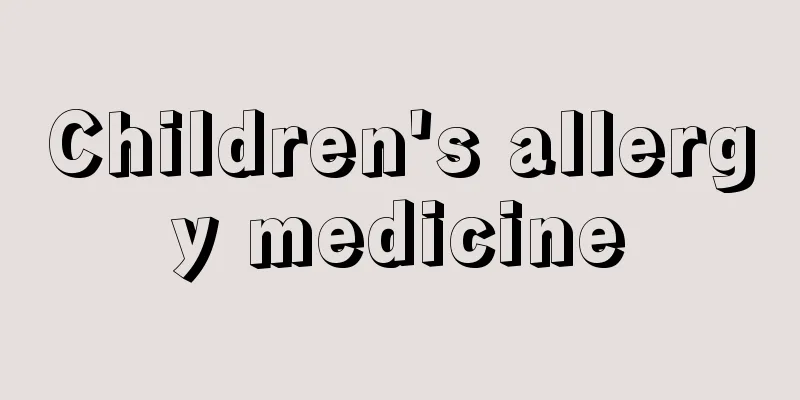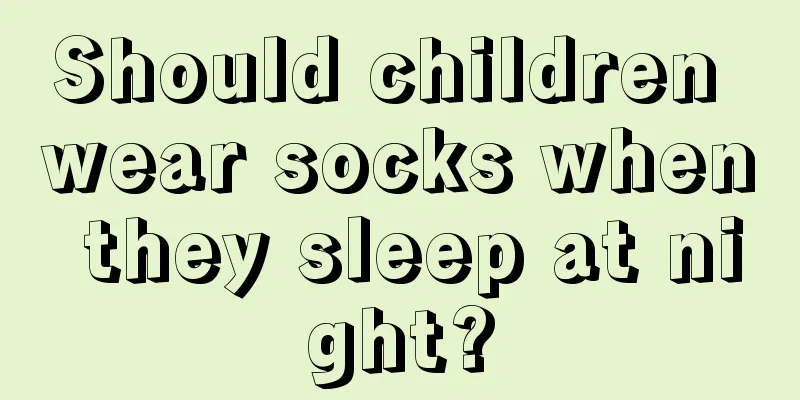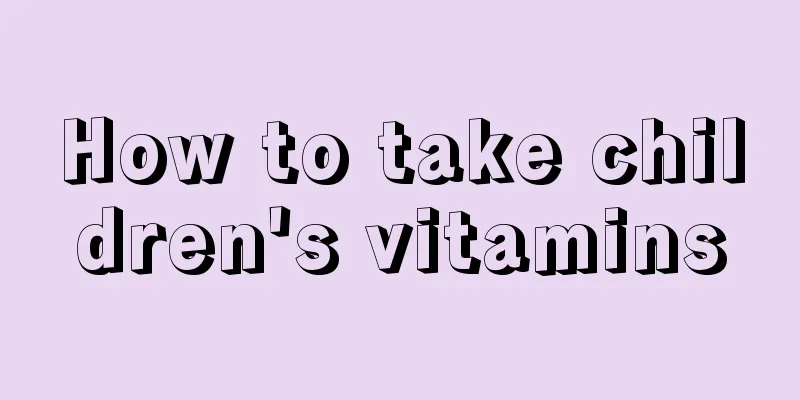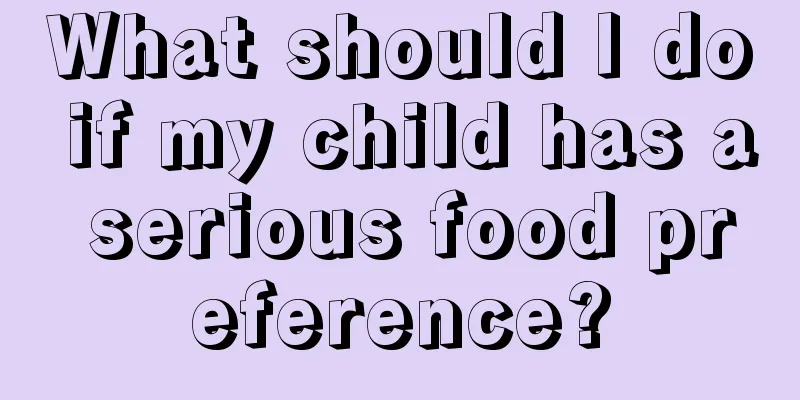Children's allergy medicine

|
We all know that when it comes to medication for children, doctors pay extra attention when treating children. Because the probability of children getting sick is relatively small, it is unknown whether many drugs will cause allergic reactions in children. Moreover, for some young children, the dosage of drugs is also particularly particular. So if children are allergic to medicines, what anti-allergic drugs are there? Let me introduce to you Allergic reaction is an allergic disease, which is an abnormal reaction that occurs when the human body comes into contact with certain specific allergens. It occurs rapidly, usually appearing after 1 to 10 minutes, but can also appear after a few days. It can be caused by a variety of substances, including foreign serum, certain animal proteins (eggs, lamb, chicken, fish, shrimp, crab, etc.), bacteria, viruses, parasites, animal fur, plant pollen in the air, dust mites, paints, dyes, chemicals, plastics, chemical fibers and drugs, etc. All of the above substances are called allergens. Allergies mainly affect the skin, digestive system and respiratory system. If the skin is affected, rash, urticaria, neurotic edema, and eczema may occur; if the gastrointestinal digestive system is affected, nausea, vomiting, diarrhea, constipation, gastrointestinal spasm, and growth retardation may occur; if the respiratory system is affected, common symptoms include sneezing, runny nose, coughing, and wheezing, allergic rhinitis, bronchial asthma, and laryngeal edema. In addition, systemic symptoms may include decreased blood pressure, increased heart rate, pale skin, edema, and weak pulse. In severe cases, shock or even death may occur. 1. Antihistamines Antihistamines are divided into first-generation antihistamines and second-generation antihistamines. Histamine is an allergen released during an allergic reaction. This type of drug can block histamine type I receptors and reduce allergic reactions. It is mainly used for urticaria, allergic dermatitis, and allergic cough. Representative drugs: First-generation antihistamines: chlorpheniramine, phenergan, diphenhydramine, etc. Doctors and parents should not give phenergan or other allergy medicines containing promethazine hydrochloride to children under 2 years old. Second-generation antihistamines: astemizole (Cetirizine), terfenadine (Mindy), loratadine (Claritin), zoltec (Cetirizine), etc. It is much more expensive than the first generation of anti-allergic drugs, but has little effect on the central nervous system and has no or only mild drowsiness effect. |
<<: Three-month-old baby's weight gain is slow
>>: Height and weight standard for three and a half year old baby
Recommend
What's wrong with the baby crying at night?
Those who have taken care of a baby should have h...
What should children with allergic purpura pay attention to in their diet
When babies are young, because of their poor immu...
What medicine is good for children with frequent urination
Not only adults experience frequent urination, bu...
Is it okay for children to get injections when they have a fever?
Many parents with children know that the process ...
Why do children urinate frequently at night?
We all know that many children urinate a lot duri...
I took antipyretics but the fever didn't go down
When many children have a fever, the first reacti...
What causes itchy hair in children?
A child's body is in the development stage an...
How to supplement zinc and iron deficiency in babies
For newborn babies, if they are deficient in zinc...
Can children get cataracts?
Cataract patients are generally elderly people, b...
Folk remedies for treating freckles on baby's face
Many parents will find that their baby has freckl...
How to deal with burns and peeling of children
When the baby is scalded again, parents must not ...
Six recipes to help your child grow taller
If you want your children to grow tall, in additi...
Is it good for babies to take baths frequently?
For newborn babies, parents and family members al...
What are the causes of dark circles under children's eyes?
We know that the physical health of children is a...
Transparent small blisters on baby's hands
In the hot summer, many people sweat a lot, which...









